Packed into the city squares of Italy, the "sardines" movement rejects both party politics and anti-immigration policies - with fun and wit
Occupiers, indignados, CodePinkers, arrestables… The recent decade of uprisings and urban protestors have minted a new set of roles and labels.
But surely the cutest - though certainly very engaged - is the Sardines movement that has erupted in Italy the last few months of 2019, and is moving to a climax in elections later this January in Emilia-Romagna.
Their behaviour is to pack public squares “like sardines” - carrying lots of home-made fish graphics, while banning party-political banners from these meetings. But they are focussing their ire on the anti-immigration and anti-multicultural politics enacted by Matteo Salvini, and his party the League (formerly the Northern League).
There are a lot of familiar elements here, at least to students of the new civic politics. The flashpoint was an election rally in Bologna on November 15th by Salvini and his supporters, boasting of the size of their public support.
Watching this, a group of flatmates in the city - including Mattia Santori, an economist and sports coach, and Andrea Gareffa, a tourist guide - decided to use Facebook to call a “flash mob” in the city, named "6000 Sardines against Salvini" ("6000 sardine contro Salvini"). On the day, almost 15,000 people came, surprising the whole country and receiving major media coverage.
Their acute focus is to prevent Salvini and the League winning in Emilia-Romagna’s coming end of January elections - for decades held by coalitions of left parties.
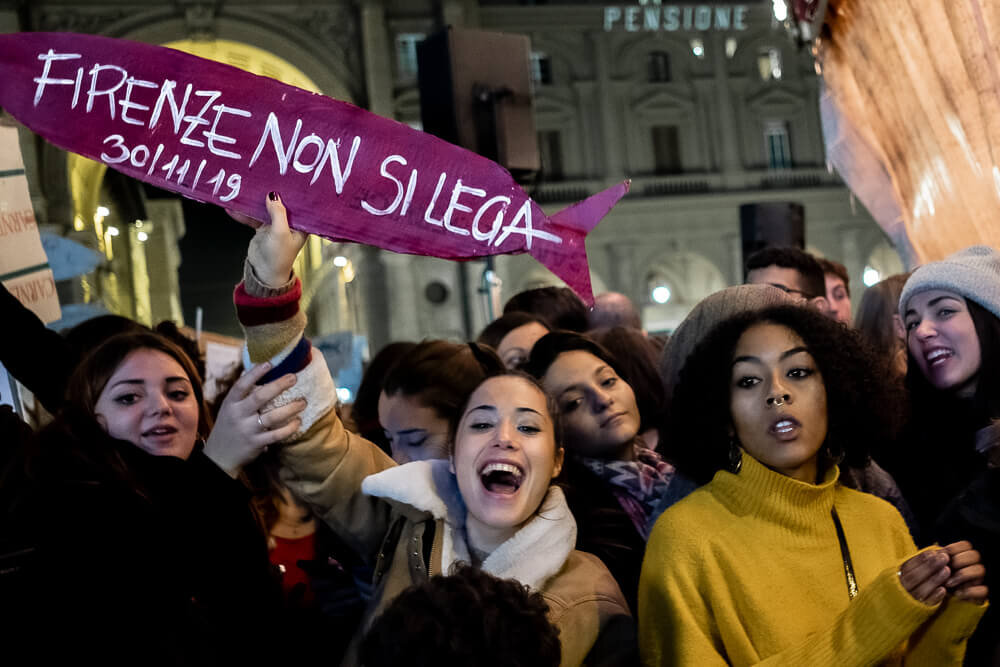
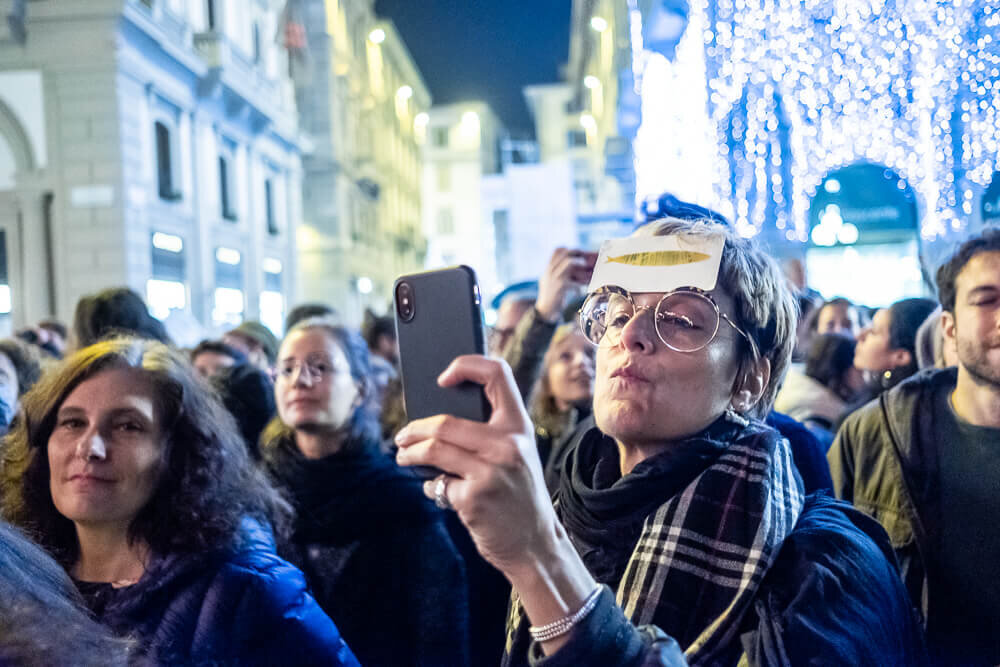

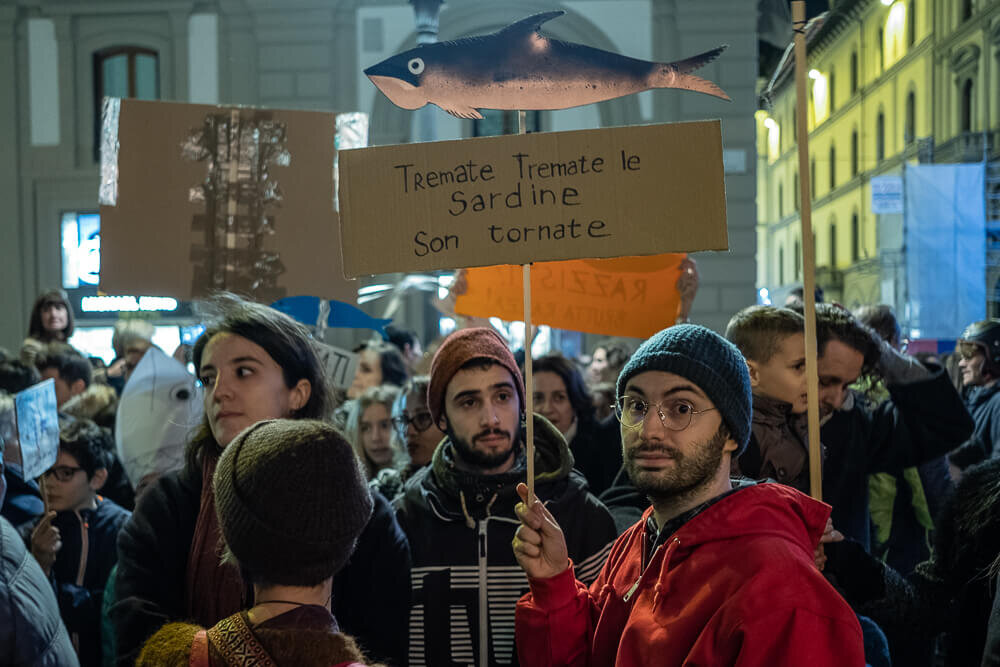
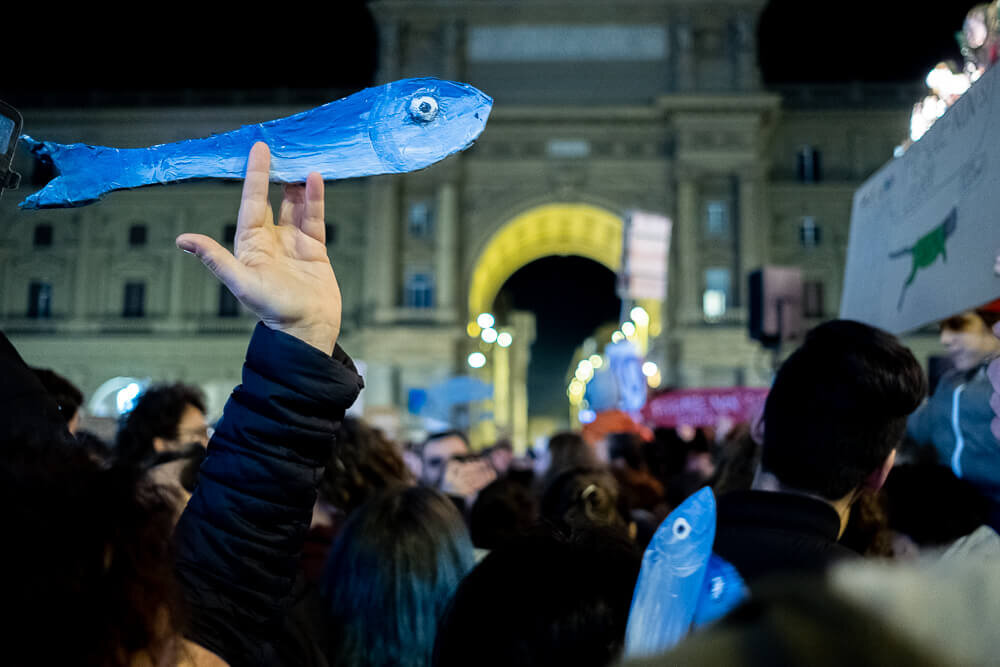

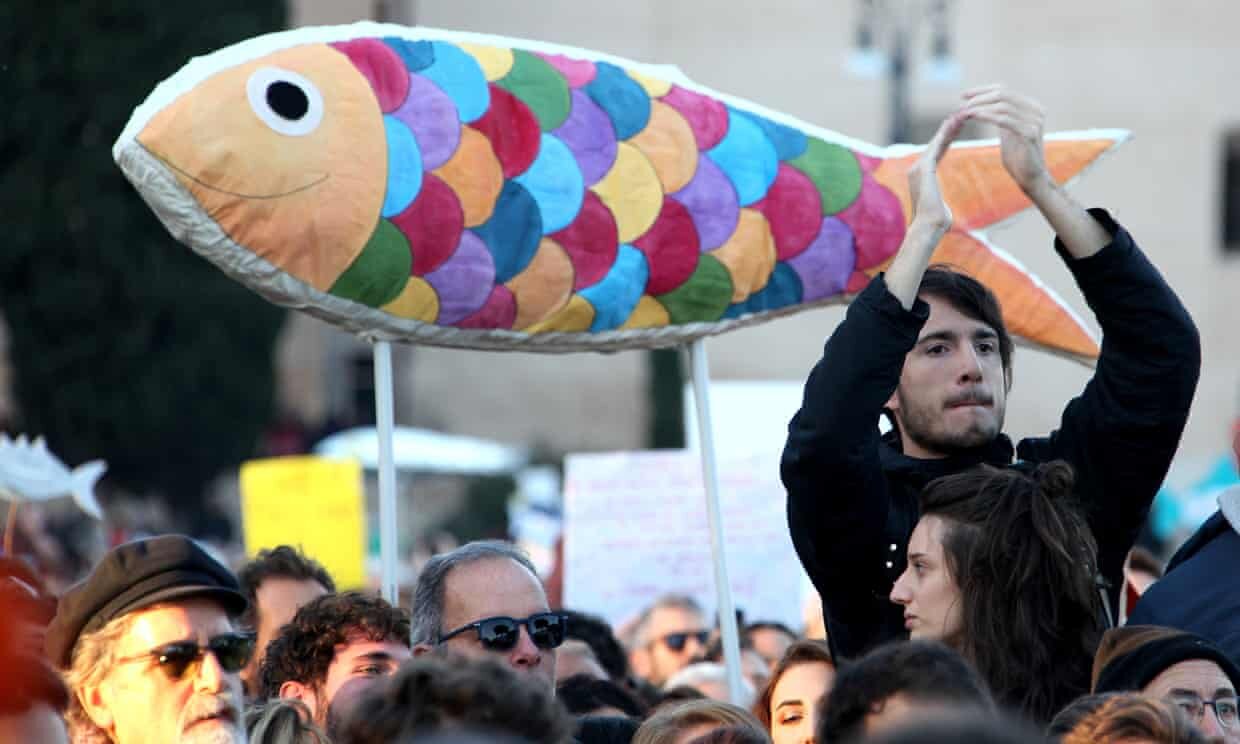
Wikipedia charts the Sardines’ subsequent history:
In December, the movement spread outside Emilia-Romagna. On 1 December, more than 25000 people participated in a rally in Piazza Duomo in Milan,[20] while on the previous day, almost 30000 gathered Piazza della Repubblica in Florence.[21] On 10 December, 40000 people demonstrated in Turin in Piazza Castello.[22] Other protests have been staged in Naples[23] and Palermo.[24]
On 14 December, one month after their first rally, Sardines organized a demonstration in Rome at Piazza San Giovanni.[25] According to the organizers almost 100000 people joined the rally.[26][27]
During Rome's demonstration, Sardines' de facto leader, Mattia Santori, presented the movement's proposals to politics, which included, among others, political transparency, condemnation of hate speech, laws against verbal violence and a new immigration policies.[28]
Santori especially asked to Giuseppe Conte's government to abolish the so-called "Salvini Decree",[29] a law approved by the previous government, which contained a series of hardline measures that abolished key forms of protection for migrants and made it easier for them to be deported. The decree also suspended the refugee application process of those who were considered "socially dangerous" or who had been convicted of a crime.
Speaking to al-Jazeera, Gareffi said that “the fact that [the Sardines movement] has spread so easily means that our messages respond to a very real need for Italians, a need to fight divisive political language, a need to go back to debating things that are important, rather than being immediately confrontational".
From the Daily Beast, one of the group’s other founders, Santori, tells crowds that they want to “bring a new energy through a much freer and more spontaneous form than a traditional political party that will not be hierarchical.”
An interview with the political historian Paul Ginsborg by Jamie Mackay about the movement gives some of its flavour (and by comparison, an interesting analysis of the failure of the Five Star Movement, Italy’s earlier “participatory” political moment):
JM: One of things I find interesting is how successful they’ve been in disrupting Salvini’s rhetoric. Predictably, his first response was to lash out: ‘I’ll set the cats on them!’ he said. But in the face of a movement that’s so inoffensive as you say, these remarks fell flat, even among his supporters.
I’d agree the organisers have revealed how useful non-violence can be in bypassing the logic of right-wing populism. Is this enough, though, to open a new affirmative democratic space?
PG: Here we come face-to-face with the possibilities of a new language of politics. The first element of an answer will depend a lot on the collective capacity to listen. In Italy no one listens to anybody else in political meetings. Instead they gather at the back of the room and conspire.
We need a politics which is about the broadening of democracy, and the defence of its inner workings. All too often meetings end way beyond schedule and with the dominion of male activists late at night. It’s a shocking but perennial way of operating.
If a movement is to mean anything, what you’ve just said about language must be applied to other areas. The turnover is terribly high. One of the most disconcerting aspects of social-movement politics is how people come and then disappear. They fly by night and we never see them again.
One notable exception to this dynamic would surely be the Five Star Movement (M5S) which in the space of just 10 years has gone from being a social movement to the largest political party in a government.
On the face of it this force was also founded on a principle of direct democracy. How does their experiment relate to that of the sardines?
The M5S has failed, or is in the process of failing. This is what gives the sardines space to move. It’s extremely interesting to note how Italy has moved from traditional representative parliamentary government to M5S’s fixation on forms of participatory democracy.
But they blew it in a big way. The overall impression they made was not of a genuine participatory model but rather of a false one, seasoned with reverential attitudes towards their leader Beppe Grillo.
Then there’s the Rousseau platform, their organising platform, the inner mechanisms of which remain a hierarchal mystery. Here we meet trompe-l’œil democracy. Essentially, around thirty thousand members of the movement – which actually is much larger than that – use polls and questionnaires to decide the line of the party.
Meanwhile the political line is clearly dictated by the leadership, which is made up of five or six people. It’s ironic and sad, but the much-maligned Partito Democratico’s (PD) system of having primaries – with two or three million people voting – is far more democratic.
The M5S and PD are now in government together, and facing imminent electoral oblivion at the hands of the far right. Now they’re desperately trying to take advantage of the impact the sardines have had on public discourse to absorb, manipulate and ultimately neutralise it. Will their efforts condemn the movement to an early demise?
I think that we can draw up a hit list of why the sardines are very vulnerable. These can essentially be grouped in two major areas: the first internal and the second external.
In the first category come all the negative passions – jealousy, narcissism, the desire for control, personalisms of every sort, including that of the primacy of family interests.
In the second we could point to all the institutions, their workings and language, political administrative government and people tied to parties, recommendations and so on. After it finishes it will be very easy for people to say I told you so.
I wonder, though, how people will characterise themselves after this movement finishes. The degree and nature of the failure will reflect people’s dual character.
In one part of their heart or soul people can believe that a different Italy is possible. At the same time another part is entirely cynical about it. These two things can co-exist within the same individual, with one aspect being more likely than the other to weigh upon them as they go through a movement.
Failure may well increase the amount of cynicism and resignation, but not before having created unforgettable moments and new energies. Eventually, the question remains: what are the mechanisms and proposals that can bring people together?

